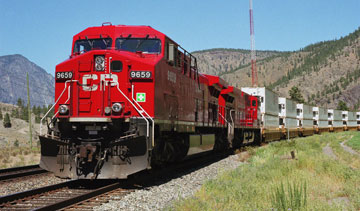
Arbitrator orders CP Rail to reinstate cocaine-using train engineer
by The Canadian Press

The crew was drug tested by Canadian Pacific Railway following a "serious rules violation" and the results indicated that the engineer had consumed cocaine

Canadian Pacific Railway CEO says companies are limited under Canadian law as random drug and alcohol testing is prohibited. PHOTO: Canadian Pacific Railway
CALGARY—Canadian Pacific Railway Ltd. is going to court to block an arbitrator’s ruling to reinstate a locomotive engineer who consumed cocaine “at a time and of a quantity which could impact his duties.”
“The arbitrator’s decision is an outrage and, as a railroader, I am appalled we would be forced to place this employee back in the cab of a locomotive,” chief executive officer E. Hunter Harrison said in a statement about the appeal.
“On my watch, this individual will not operate a locomotive,” Harrison added. “The decision sets a dangerous precedent and is grossly unacceptable for the safe operation of a railway.”
CP Rail said it will appeal the July 14 order by the Canadian Railway Office of Arbitration to the Superior Court of Quebec asking it to overturn the decision.
The CROA decision stems from an incident in December, 2012 in which the crew, operating a freight train, committed a serious rules violation. The crew was drug tested following the incident and the arbitrator found that the results indicated that the engineer had consumed cocaine.
Nevertheless, the arbitrator ordered that the employee be reinstated.
Harrison said CP has a vigorous zero-tolerance drug and alcohol program, but companies in Canada are limited under Canadian law as random drug and alcohol testing is prohibited.
“This decision highlights the need for further public debate regarding the rights of an individual when employed in positions involving the safety of the public,” he said.
“Companies in Canada need the ability to carry out random drug tests as safety should trump the rights of any individual who makes the dangerous choice to place themselves, their coworkers and the general public at risk,” said Harrison, who noted railways in the U.S. are required by Federal law to perform random drug tests.